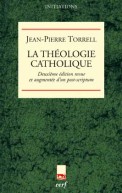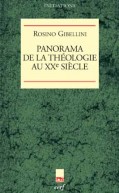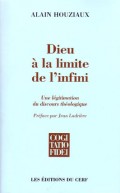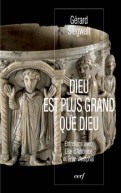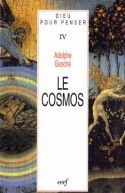
Conversation sur le mal
de Christophe Henning , Jean-Luc Blaquart
Collection Théologies
112 pages - sept. 2007
18,70€
La question du mal nous hante. Difficile pourtant d'en parler. Rien n'est simple : on ne sait ni comment poser le problème, ni, encore moins, formuler des réponses. Si grand est le défi que bien souvent on renonce. Dans ce livre, Jean-Luc Blaquart et Christophe Henning prennent le risque d'affronter la difficulté. En prenant pour méthode la conversation, ils font un choix de pédagogues éclairés : au fil de leur échange, le lecteur reconnaîtra les expériences qu'il fait lui-même ou les questions qu'il se pose : Le mal est-il normal ? Qu'en est-il du malheur de l'innocent ? Est-ce pour rien qu'on souffre ? Le mal juste ou injuste ?, etc. Au fil des pages, c'est le cheminement essentiel de la philosophie et de la théologie face à la question du mal et de la souffrance qui est emprunté. Un chemin patient, souvent exigeant mais aussi libérant. Le lecteur ne regrettera pas de refaire ce chemin qui traverse des siècles de questionnement, pour mieux saisir les réactions de la société actuelle, pour donner toute sa place à la vie face à la souffrance, pour comprendre autant que possible les ressorts de ce mal injuste. Pour Jean-Luc Blaquart et Christophe Henning, il ne s'agit pas de tout dire mais plutôt que leur « échange laisse au lecteur le loisir de retrouver lui-même, dans la vie du monde ou dans son actualité personnelle, quelle forme peuvent prendre le mal et la souffrance. Pour mieux l'appréhender. Et pour découvrir davantage la manière dont l'humanité peut affronter le mal en questions ».
--
The question of evil haunts us. Yet it is difficult to talk about. It is never simple: we don’t know how to pose the problem, and even less how to formulate replies. The challenge is so great that often, we give up. In this book, Jean-Luc Blaquart and Christophe Henning take the risk of affronting the problem. By adopting conversation as their method, they have made an excellent pedagogical choice. During their exchange, readers will recognise their own experiences and the questions they have asked themselves: Is evil normal? What about the unhappiness of the innocent? Do we suffer to no avail? Is evil just or unjust? … As we turn the pages, we follow the essential route of philosophy and theology when confronting the question of evil and suffering. It is a way that requires patience, often demanding but also liberating. The reader will not regret taking this path through centuries of questioning, to better understand the reactions of today’s society and to give suffering its place; to understand, as much as possible, what drives this unjust evil. For Jean-Luc Blaquart and Christophe Henning, it is not a question of saying everything but their ‘exchange leaves readers free to find out for themselves, in the world or in their personal situations, what form evil and suffering can assume. To be better prepared. And to discover more about the way in which humanity can affront evil in questions’.
--
The question of evil haunts us. Yet it is difficult to talk about. It is never simple: we don’t know how to pose the problem, and even less how to formulate replies. The challenge is so great that often, we give up. In this book, Jean-Luc Blaquart and Christophe Henning take the risk of affronting the problem. By adopting conversation as their method, they have made an excellent pedagogical choice. During their exchange, readers will recognise their own experiences and the questions they have asked themselves: Is evil normal? What about the unhappiness of the innocent? Do we suffer to no avail? Is evil just or unjust? … As we turn the pages, we follow the essential route of philosophy and theology when confronting the question of evil and suffering. It is a way that requires patience, often demanding but also liberating. The reader will not regret taking this path through centuries of questioning, to better understand the reactions of today’s society and to give suffering its place; to understand, as much as possible, what drives this unjust evil. For Jean-Luc Blaquart and Christophe Henning, it is not a question of saying everything but their ‘exchange leaves readers free to find out for themselves, in the world or in their personal situations, what form evil and suffering can assume. To be better prepared. And to discover more about the way in which humanity can affront evil in questions’.
- Dimensions : 135x215x9
- ISBN : 9782204082891
- Poids : 165 grammes
DANS LA CATÉGORIE
Dogmatique III–1 : Cosmologie théologique : Sciences et philosophie de la nature
de Gérard Siegwalt
302 pages - oct. 1996

